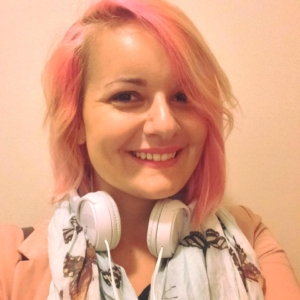The Eating Disorders Community Must Take a Stand Against Rape Culture
Women’s bodies are routinely criticized, commodified, and objectified. While RAINN reports that 1 out of every 6 American women has been the victim of an attempted or completed rape in her lifetime, sexual violence is often trivialized or even dismissed.
I am enraged, disappointed, and sad. But mostly, I am tired.
Content note: descriptions of sexual violence
I’m tired of the Harvey Weinsteins of the world building empires as sexual abuse allegations swirl around them as influential women like Donna Karan defend them.
Women’s bodies are routinely criticized, commodified, and objectified. While RAINN reports that 1 out of every 6 American women has been the victim of an attempted or completed rape in her lifetime, sexual violence is often swept under the rug or trivialized.
Sexual trauma may serve as a catalyst for developing an eating disorder. According to renowned trauma expert Timothy Brewerton, women who report sexual trauma exhibit higher rates of both PTSD and eating disorders. Sexual trauma has also been linked to body image issues, including weight loss or weight gain in an effort to decrease attractiveness.
It’s easy to feel powerless, but we do have power. We do have a voice. Here are three ways you can educate yourself and others and start creating change in your own community:
- Commit to educating yourself about sexual violence. RAINN’s website contains helpful information and statistics that you can use to open a conversation with others.
- Commit to challenging rape culture and shutting down rape jokes. Be the person who doesn’t laugh when someone else tells an insensitive joke.
- Commit to standing up for the women who see themselves in Cara Delevingne, Ashley Judd, Angelina Jolie, and Gwyneth Paltrow. If someone confides in you about experiencing sexual violence, serve as a nonjudgmental source of support for them. For tips on how to do that, see RAINN’s tips on helping a friend.
Every small step you take matters. Together, we can create a better, kinder future.
If you or someone you care about has been the victim of sexual assault, please act now to ensure that you get the help you need and deserve. Call RAINN’s National Sexual Assault Hotline at 800-656-HOPE.
For recovery resources and treatment options, please visit our help and support page. If you or someone you know is struggling with an eating disorder, call ANAD’s Helpline at: (888) 375-7767 or the National Alliance of Eating Disorders Helpline at: (866) 662-1235.
If you are thinking about suicide, call or text the National Suicide Prevention Lifeline at 988. In crisis situations, text “NEDA” to 741741 to be connected with a trained volunteer from the Crisis Text Line.
Note: people of all genders experience sexual violence. This piece is a response to recent allegations made against Harvey Weinstein.
Diana Denza is NEDA’s communications associate. She graduated from Fordham University in 2011 with a degree in communications. Diana is a fan of good writing, wildly-colored hair, and cute desk toys. She’s never met a cat she didn’t like, except for that one time she’ll never talk about again.





